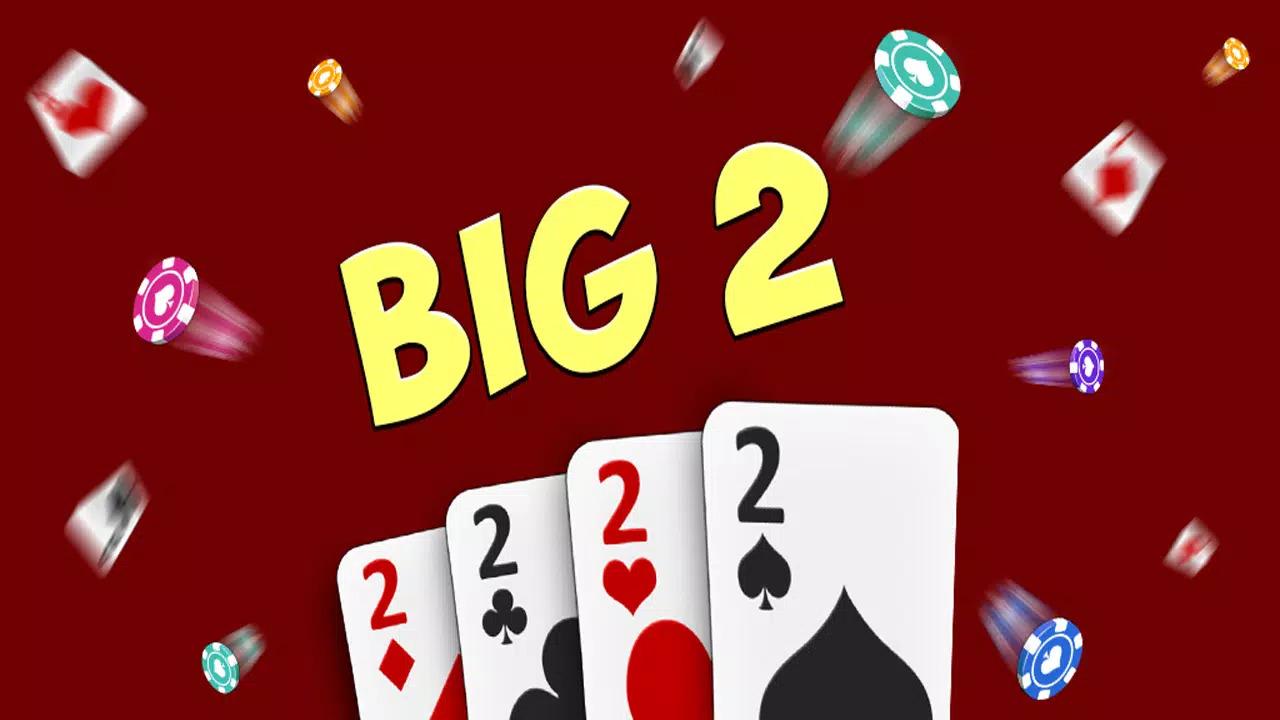Big Two is a card game that uses a standard deck of cards. It can be played analog or online on various board game sites. Big Two’s creator was not clearly documented, but the card game is known to be of Cantonese origin. Its target audience is teenagers and adults.
For context, Big Two is typically played among 4 people, and each person is dealt exactly 13 cards. In this game, 3 is the weakest card and 2 is the strongest card, and the suits matter as well. The first player of the round can decide the pattern (singles, pairs, triples, 5-card hands). Everyone needs to put down a bigger card, or corresponding combination, than the person before them. Your goal is to get rid of all your cards first.
Big Two engages with probability mainly through shuffling and dealing cards, which generates different challenges each game and hooks the player into persistently trying to get a stronger hand. The variability of the game and the urge to win through a good hand can lead to addiction. Compared to other games of chance, Big Two puts more emphasis on skill and strategy, and has a smaller risk for impulse decision-making.
Since the deck of cards are reshuffled and dealt before each game, each player has a new, random set of 13 cards each time. Each game is so different because there are an incalculable amount of card combinations and strategies, causing the player to rarely get bored of the challenge. Typically, I am able to play with the same group of friends for one whole afternoon. The unpredictability of how each game pans out can be a factor for addiction.
Of course, another source of addiction is the need to win. Everyone wants to be dealt a set of good cards, meaning that it has strong cards and it is more “complete” – less stray cards and more complete combinations. The feeling that probabilistically you would have to get a good set in the next round drives people to keep going. For example, when I enter a losing streak, I get frustrated because I feel so unlucky and just want to see proof that the cards will be in my favor for once. I crave the satisfaction of finding a 2 in my deck, and feel resentful that other people have been consistently able to get better cards. Others share the same mentality of attributing wins and losses to luck. When this happens, people become irrational and emotional about why things don’t go their way, rather than analyzing the actual probabilities. Often, I see people blaming away their losses by complaining that “the cards were shuffled poorly” or that “the cards were dealt in the wrong order”.
Indeed, the order in which the cards are dealt matters – the winner always gets dealt the first card in the new round. This designated order gives the player some illusion of control – that by winning the round, they could somehow influence the outcome of the next round.
I am also inclined to continue playing if I experience a near win – like when I come in second place, or when I get dealt a good hand but did not execute optimally. The feeling of cognitive regret, as with any other games of chance, can lead to addiction as well.
Compared to other games of chance, such as poker or slots, I believe that Big Two relies more on logical skill and strategy than probability or other factors like psychology or bluffing. With Big Two, it is possible to win with a bad hand if executed well, whereas in Poker, people are more likely to fold instead of risking their money, or they would have to use some kind of psychological strategy instead. Big Two also lessens the risk of making impulsive monetary decisions. Since the duration of one complete game is relatively long, you have more time to bounce back from loss and contemplate your willingness to bet more money. On the other hand, in Poker, you are forced to make an immediate choice on whether to bet more money on every rotation. In slots, the quickness of the result also encourages you to just try one more time. In these games, it would be harder to put rational thought into your decisions.



